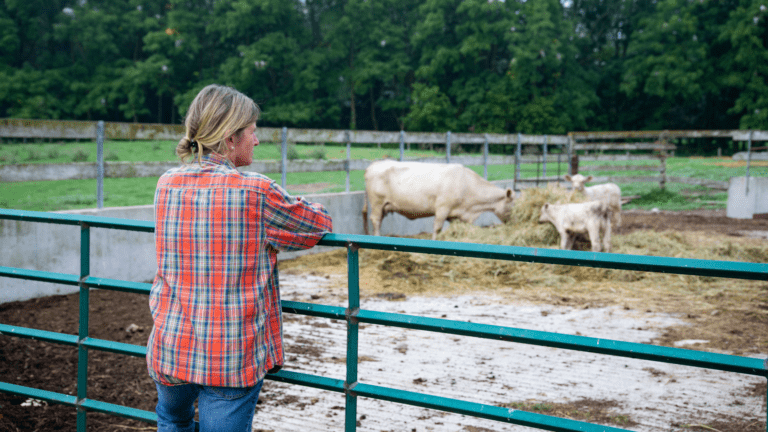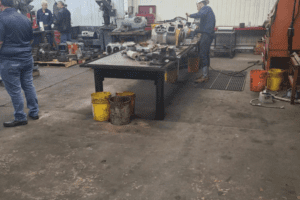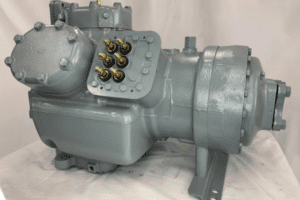

Understanding the Refrigeration Requirements of American Farms
Meat and milk alike have extremely strict refrigeration requirements. From the moment a cow, pig, or other animal is harvested for food, the meat must be refrigerated consistently. Refrigeration continues all through the process of butchering meat, processing it, packaging it, and transporting it to the grocery store.
Beef must be refrigerated around 28° Fahrenheit, giving it even lower temperature requirements than milk. Pork and chicken have slightly higher temperature requirements, while many forms of seafood have relatively low ones. Farmers maintain a great deal of responsibility for proper refrigeration in early processing.
Before meat processing is completed, the product must be examined for any evidence of damage or spoilage. In general, the biggest threat to any meat product is that it will not be maintained at the appropriate temperature.
An early failure to refrigerate correctly can lead to discoloration or changes in texture that render an entire cut – and potentially the meat of an entire animal – unfit for sale. In this sense, refrigeration is the farmer’s best defense against preventable loss of their time- and resource-intensive products.
Successful Farmers Are Strategic About Refrigeration Needs
Every square foot of refrigerated space required by a farm represents space that cannot be dedicated to the growth or preparation of other products. Likewise, refrigeration must be optimized on a variety of levels: The location, ergonomics, and size of a refrigeration unit influence the farm’s daily throughput capacity.
Any technical or mechanical glitches in refrigeration operations can prove disastrous.
Even if space is kept strictly at the low end of safe temperatures – that is, 28° for beef – it will rapidly warm up if refrigeration lapses for just a few minutes. Beef that reaches 40° Fahrenheit experiences a rapid increase in proliferation of bacteria and will generally not be deemed safe for consumption.
Plus, moving product from one refrigerated facility to another brings its own risks.
In the face of these imperfect solutions, the best way farmers can prepare for the worst is through better refrigeration systems. Redundancy should be sought in both systems and supplies. This ensures that if a disaster strikes, repairs can be made quickly and potentially save a full day’s worth of product.
Remanufactured commercial compressors have therefore become essential to farmers.
Remanufactured Commercial Compressors Protect Farmers from Unexpected Loss
The compressor operates as the “heart” of a refrigeration system in a quite literal way. Its role is to compress refrigerant gas, enabling it to transit the rest of the system. The efficiency of the compressor affects all of the other components. Should it fail, the system will immediately come to a halt.
The average commercial compressor can be trusted to operate for around eight years at full efficiency if given the appropriate maintenance. Performance degradation is generally noticeable thereafter. Replacement plans should be ready by the tenth year of service. Compressors rarely last beyond twelve years of daily operation.
A new compressor is a major investment for any business, but especially in agriculture.
Depending on the size of a farm, it may need anywhere from half a dozen to several hundred compressors to support all of its operations. Even small family farms rarely meet all their refrigeration needs with a single compressor – and when they do, you can bet there is a replacement compressor standing by.
In most cases, those backup compressor units will be fully remanufactured compressors.
A remanufactured compressor is completely disassembled so all parts can be inspected, tested, and replaced as necessary. All components and surfaces are cleaned. The exterior may be painted, but beware of “refurbished” compressors where more has been done to make it look good rather than perform well!
In true remanufacturing, the compressor is usually tested under load to ensure performance.
Remanufactured compressors may be 30% less expensive than an OEM unit from a brand’s wholesaler. They can be delivered and installed weeks sooner, too, helping farmers address their needs quickly. Substantial savings make it easier for small local farms to afford preferred agricultural compressor brands like Copeland.
The Copeland 4DT2200TSK is one of the most requested remanufactured compressor models in farming.
With its combination of power and efficiency, this Copeland compressor is a mainstay in refrigeration operations for mid-sized farms. Its relative ease of use and maintenance is ideal for farmers, who need to understand the workings of their equipment and make adjustments between major maintenance checks.
To meet high quality standards, more farmers are choosing remanufactured compressors every day.












